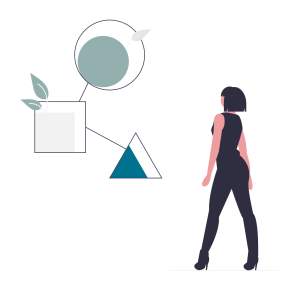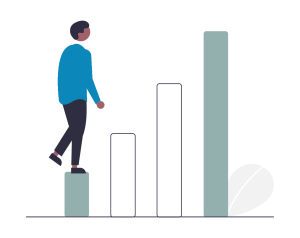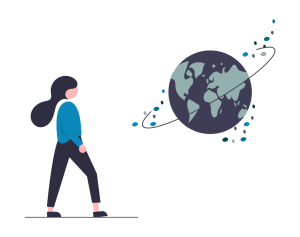Appendix A: SILEx & Job Skills for the Future
 Create an awareness of the wider world and your place in it.
Create an awareness of the wider world and your place in it.
Global citizenship is having a worldview grounded in civic responsibility and ethics. Global citizens think both on a structural level (e.g., how does my consumption affect people around the world?) and on an individual level (e.g., how should I greet my international peers in a way appropriate to their cultural norms?).
A global citizen will learn from and with others who are different from themselves. They will examine ideas such as privilege and the relative positions of power. They are committed to social justice and to breaking down global inequities.
 Identify and achieve personal learning goals
Identify and achieve personal learning goals
Being a self-directed learner means being autonomous, organized, and self-disciplined. They are able to communicate effectively, accept constructive feedback and engage in self-evaluation and self-reflection to learn. Self-directed learners are lifelong learners as they continue to grow and adapt to complex social and technological changes throughout their careers. They are self-motivated.
 Build and nurture mutually beneficial relationships
Build and nurture mutually beneficial relationships
Social Intelligence is being able to interact positively with others, build strong, healthy relationships, and thrive in social environments. It has the self-awareness to effectively apply the knowledge of social dynamics and team building to create positive outcomes for everyone involved. Individuals who demonstrate the skill of Social Intelligence have excellent communication skills and are empathetic. We often refer to Social Intelligence as ‘people skills’ or ‘interpersonal skills’.
Resilience is the ability to thrive while overcoming obstacles. It is the ability to accept difficult situations and adapt in order to move forward. An individual with Resilience skills is capable of coping with stress, emotional upheaval, and pressure. They have the mindset that their skills and abilities are dynamic, not fixed, allowing them to work through hard times to a better future.
 Find innovative, creative, and unconventional relationships between things or concepts
Find innovative, creative, and unconventional relationships between things or concepts
Being a Novel and Adaptive Thinker means being creative in analysis and solutions. They address complex and sometimes controversial issues with a humble and open-minded attitude. They think ‘outside the box’ in response to unique or unexpected situations, attempting to find unique but effective answers. They thrive when challenged and are willing to adapt or change a solution when circumstances change or other options present themselves.
 Manage projects to achieve key milestones and outcomes
Manage projects to achieve key milestones and outcomes
Excelling in Implementation skills means an individual has a “get er done” attitude. They can design, manage and execute projects, initiatives, or plans in an organized, timely fashion. They can guide a project from idea to completion while managing themselves and others effectively. They are action-oriented and enjoy a ‘hands-on approach’.
 Find solutions to real-world problems
Find solutions to real-world problems
Complex Problem Solving is the skill of applying a method to a problem, often not seen before, to obtain a satisfactory solution. It requires a creative combination of knowledge and strategies to arrive at an answer. Rapid technological change, the increasingly global exchange of ideas, and the proliferation of easy-to-access information – some of which is decidedly unreliable – all contribute greater complexity of the problems that they will need to solve.
For more information on this topic, see: Appendix A: The 7 Job Skills for the Future in Fanshawe SOAR.
“Appendix A: The 7 Job Skills for the Future” from Fanshawe SOAR Copyright © 2023 by Kristen Cavanagh is licensed under a Creative Commons Attribution-NonCommercial-ShareAlike 4.0 International License, except where otherwise noted.

